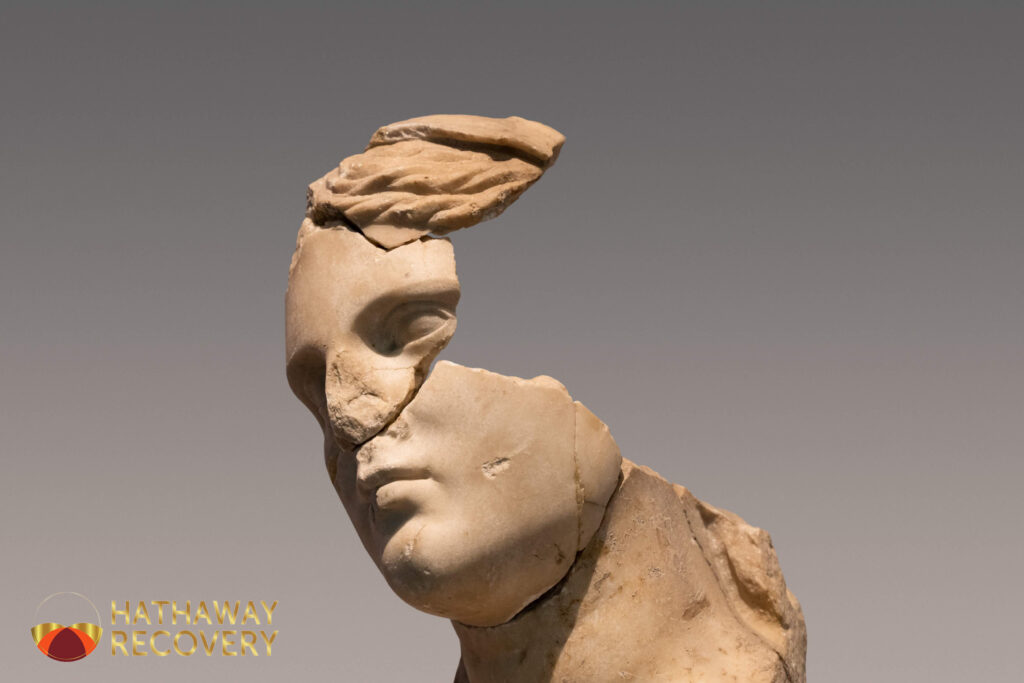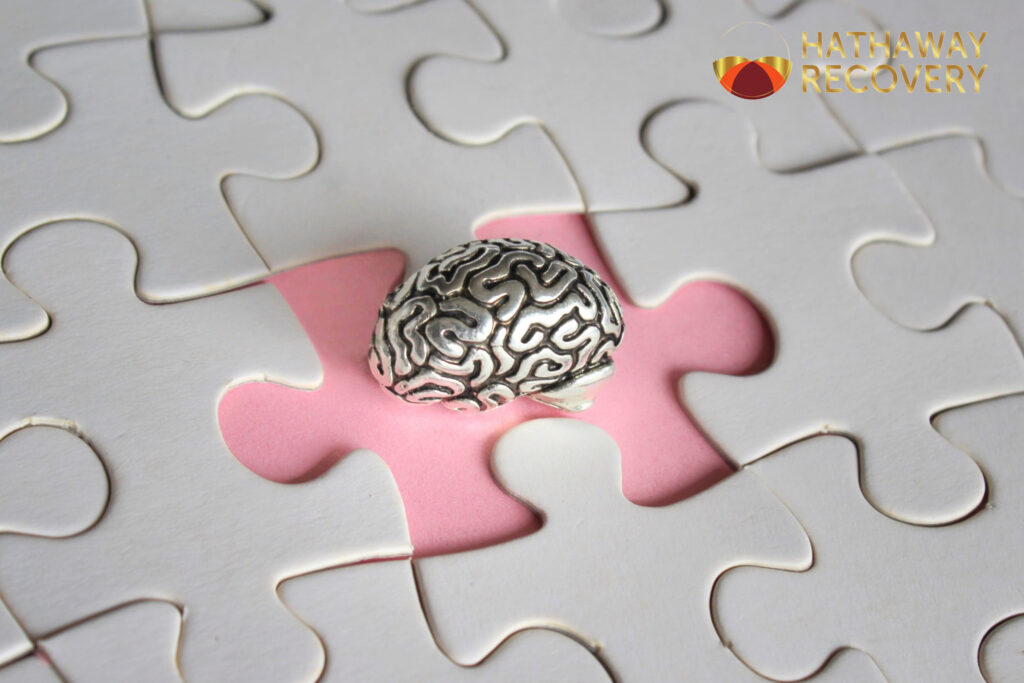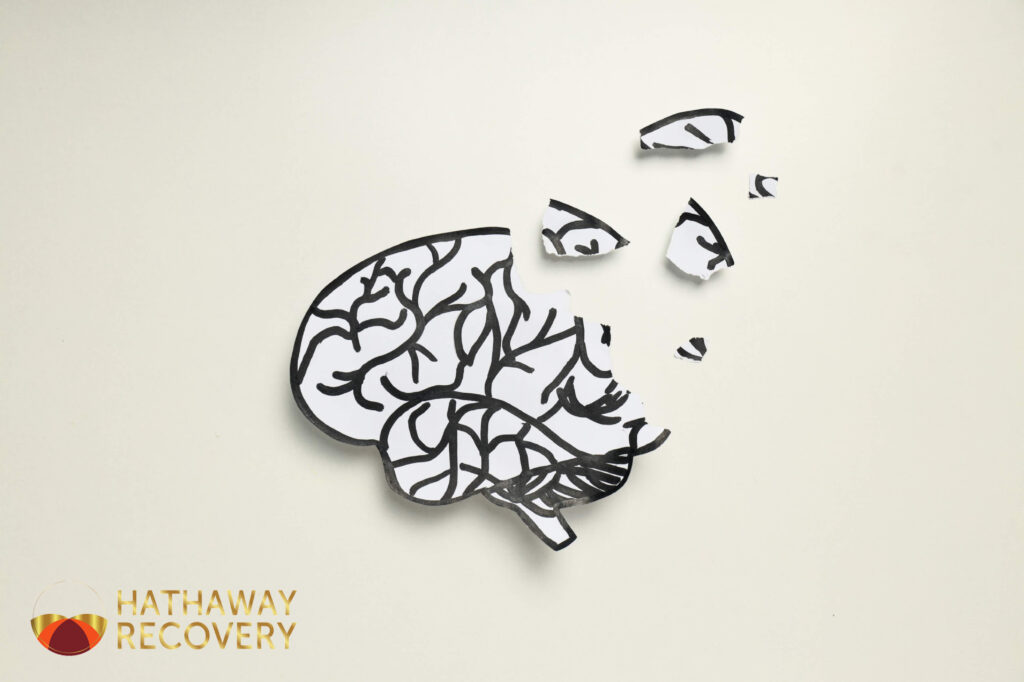There are many signs and behaviors to look out for when a person is intoxicated or abuses drugs.

Alcohol and drugs can have profound effects on our brains, resulting in what we call the external effects of drug or alcohol abuse. There are many signs and behaviors when a person is intoxicated or abuses drugs. There are also many consequences for the brain. This organ is affected both by short-term and longer-term drug use.
It is possible to have brain damage due to drugs or alcohol. Some drugs, such as methamphetamine or MDMA, can damage the brain similar to a TBI, which can cause brain cell death, memory loss and irreversible damage. The severity of damage, as well as its ability to repair, will vary depending on how the drug was used and who used it.
Five warning signs of brain damage from drugs and alcohol
There are several brain damage from drugs signs that you should look out for if you or someone close to your heart has been abusing drugs or alcohol over a period of time. You should seek medical attention if you have any of these symptoms or suspect that something is wrong.
These signs can indicate brain damage that is either short-term (or permanent) or caused by alcohol and drug abuse.
Delayed Reactions
A delayed reaction time can indicate a brain problem. Some examples could be taking a while to realize you are touching something hot, or if you raise your hands after you have been hit to block your face.
Memory lapses and blackouts
It’s important to get medical help and look into the possible role that alcohol and drugs may play in the problem.
Hallucinations
If you are hallucinating when sober, this could be due to frequent or long-term use of drugs. Hallucinations can be caused by many medical conditions, including schizophrenia (which is common among drug-users). It’s therefore important to consult a doctor when you experience hallucinations.
Sudden loss of coordination
While everyone trips and falls occasionally, if the person suddenly experiences a lack of physical coordination it could indicate that their brain isn’t functioning properly. Coordination problems can be characterized by frequent falls and difficulty grabbing or holding onto things.
Problems with thinking
Not being able think clearly, having difficulty planning, making decisions, and performing everyday tasks can be very challenging. This could indicate that your brain is having difficulty performing its duties.

Brain Disorders Caused By Drug and Alcohol Abuse
Many drugs can have negative neurological effects on the brain, affecting its ability to maintain health and function. The effects of drugs can be long-lasting, whether they cause seizures, strokes, or directly affect the cells of the brain.
The Substance Abuse and Mental Health Services Administration reports that drug and alcohol abuse can cause a variety of brain disorders.
- Psychosis: Psychosis is the condition of losing touch with reality. It is usually a sudden episode, with symptoms such as hallucinations and speech that makes no sense.
- Anhedonia- Anhedonia, or the inability to enjoy pleasure physically and/or socially is a common symptom of drug abuse. It can also be an indication of depression.
- Dementia is a term that describes several symptoms of a decline in mental functioning, such as memory loss. It can also lead to problems with language, speech, reasoning, judgment, visual perception and focus.
- Delirium- Delirium is common in elderly people, but it’s more likely to occur when a young person has been using drugs. People with delirium have difficulty focusing and may display fearlessness or paranoia. You may be hyperactive and irritable or extremely withdrawn.
- Wernicke Korsakoff Syndrome: Chronic alcohol abuse may cause Wernicke Korsakoff Syndrome. This syndrome is marked by confusion, visual changes, exaggerated stories, and loss of coordination.
- Persisting Perceptual Dysfunction – Persisting Perceptual Dysfunction is a rare disorder that can be very difficult to deal with. This disorder can lead to visual disturbances such as flashes of colors, intensified colours, halos around an object, seeing an image inside another image, or seeing geometric patterns where none exist.
List of drugs that can cause brain damage
Misusing any drug, even one prescribed by a physician, is not “safe”. Any drug can have very dangerous and unpleasant side effects. A person may also suffer brain damage over a long period of time if they abuse it heavily. These are the most common drugs that cause brain damage. This list is not exhaustive.
- Alcohol
- Opioids (heroin, prescription painkillers)
- Stimulants: MDMA, MDMA, methamphetamine
- Cannabis (marijuana)
- Hallucinogens (PCP, LSD)
- Benzodiazepines (Valium, Xanax)
- Inhalants11
Can brain damage from drugs be reversed?
Not all brain damage caused by drugs can be reversed. Can drugs permanently damage the brain?
It’s difficult to determine if brain damage caused by drug abuse is repairable or not just based on the symptoms and diagnosis.
A doctor can tell you if and how much damage is reversible. Although large amounts of brain cellular death are not repairable in early stages, there may be some repairable damage.

Heal the physical and psychological damage of drug abuse
Early detection and treatment are the keys to full recovery. The risk of brain damage caused by drugs and alcohol can be frightening, but early detection is key. Medical drug and alcohol treatment programs can help those recovering from addictions.
Hathaway Recovery’s medical detox program treats clients’ withdrawal symptoms to ensure a comfortable and safe experience. Our medical and clinical teams will provide a comprehensive plan to address all physical and mental needs as clients heal and recover. This could include treating neurological disorders like dementia, psychosis and delirium.
Hathaway Recovery provides a customized treatment program that includes evidence-based therapies like behavioral and experiential treatments. Our holistic healing program will help you grow as a person and give your life a new start.
Your privacy and comfort are our top priorities. Relax in our luxurious facilities. Hathaway Recovery Center’s staff is professional and compassionate.
We offer private rooms, individual treatment, and effective plans of treatment. Our team includes the best specialists. Our mission is to Renew and Rebuild Lives.
If you have questions, please call the Admissions Department at (909) 971-3333.
Your information is confidential.
Do not miss this chance to transform your life.
- Individual Counseling
- Group counseling
- Family Drug Education
- Relapse Prevention Therapy
- Counseling for Grief






